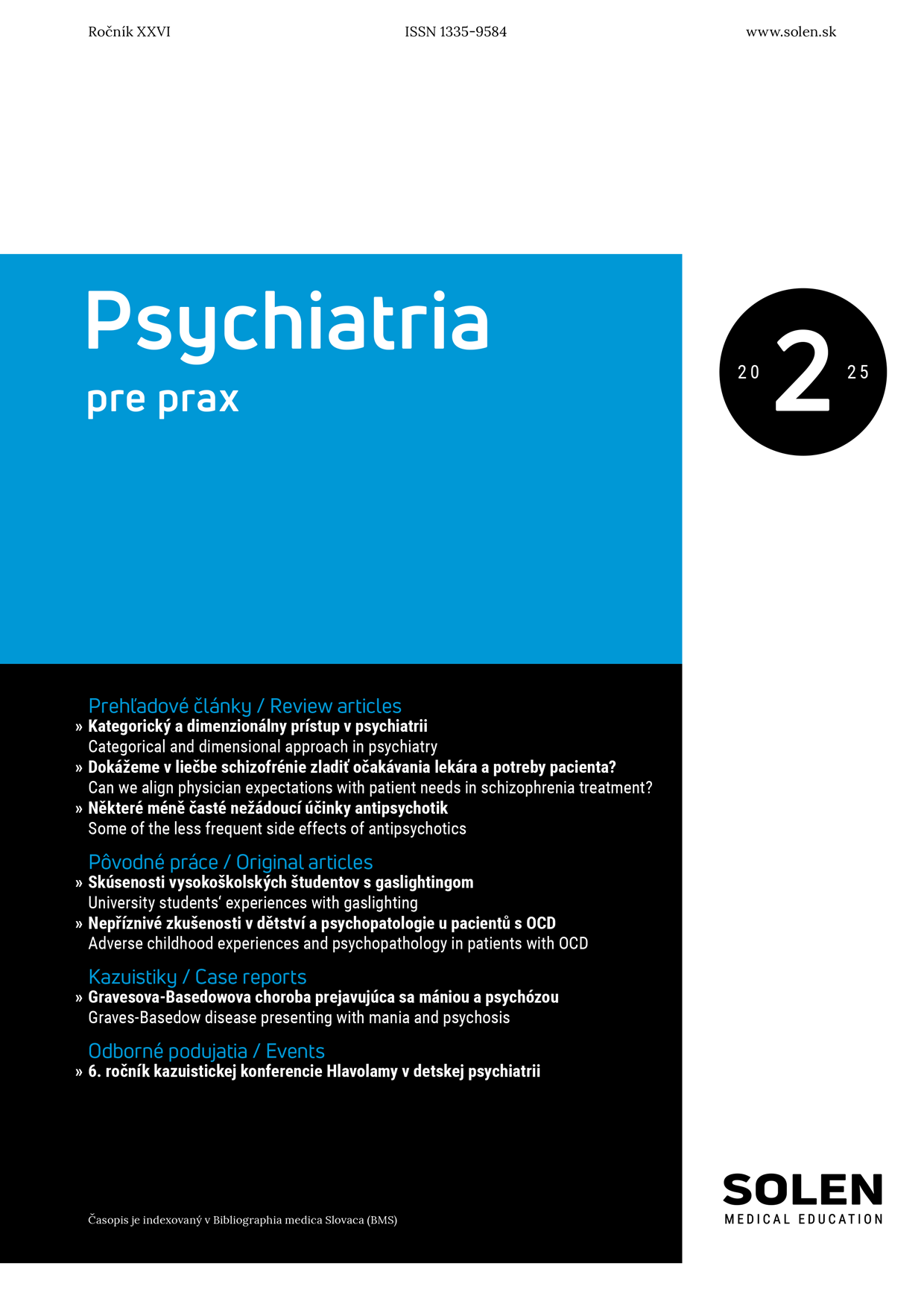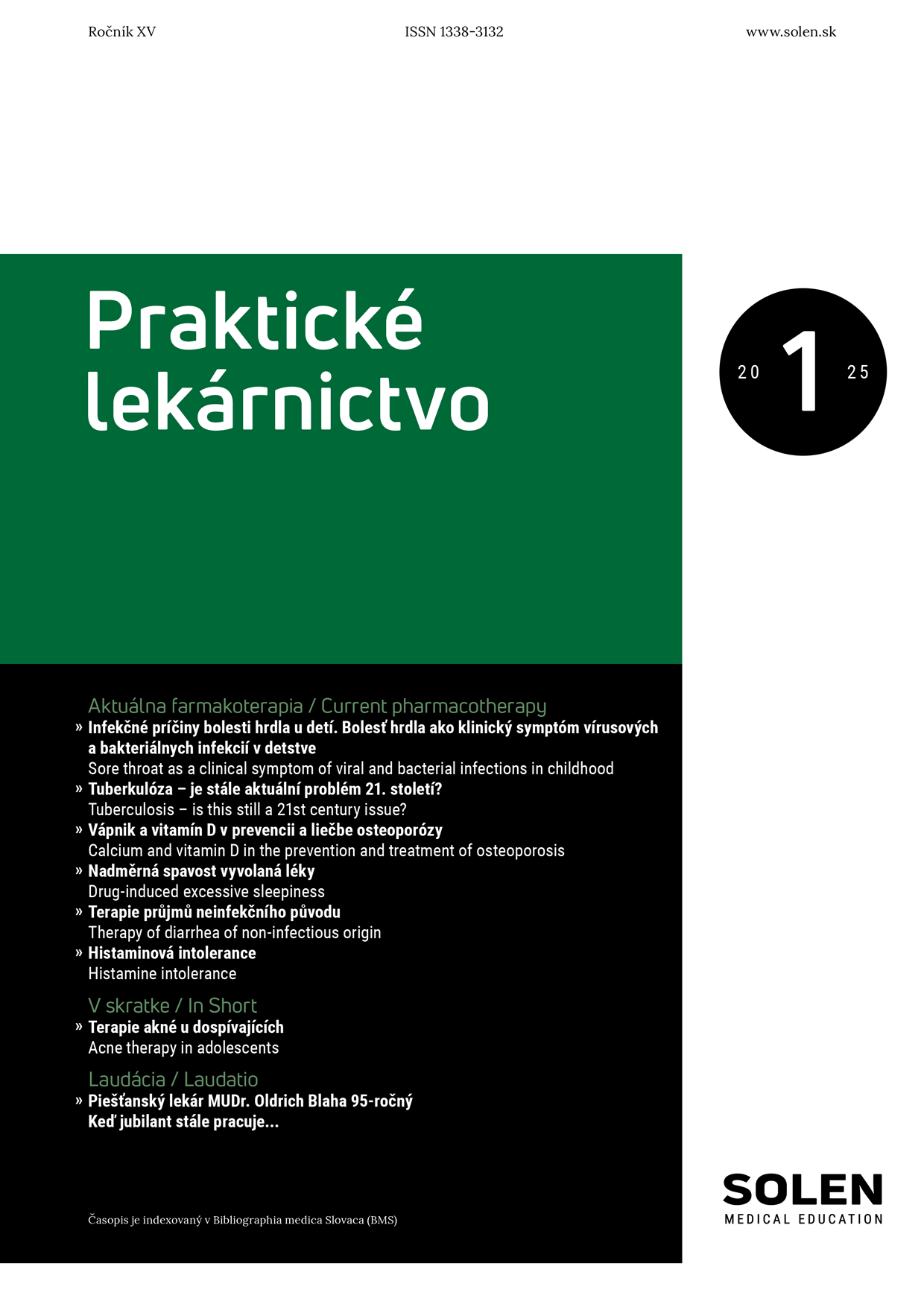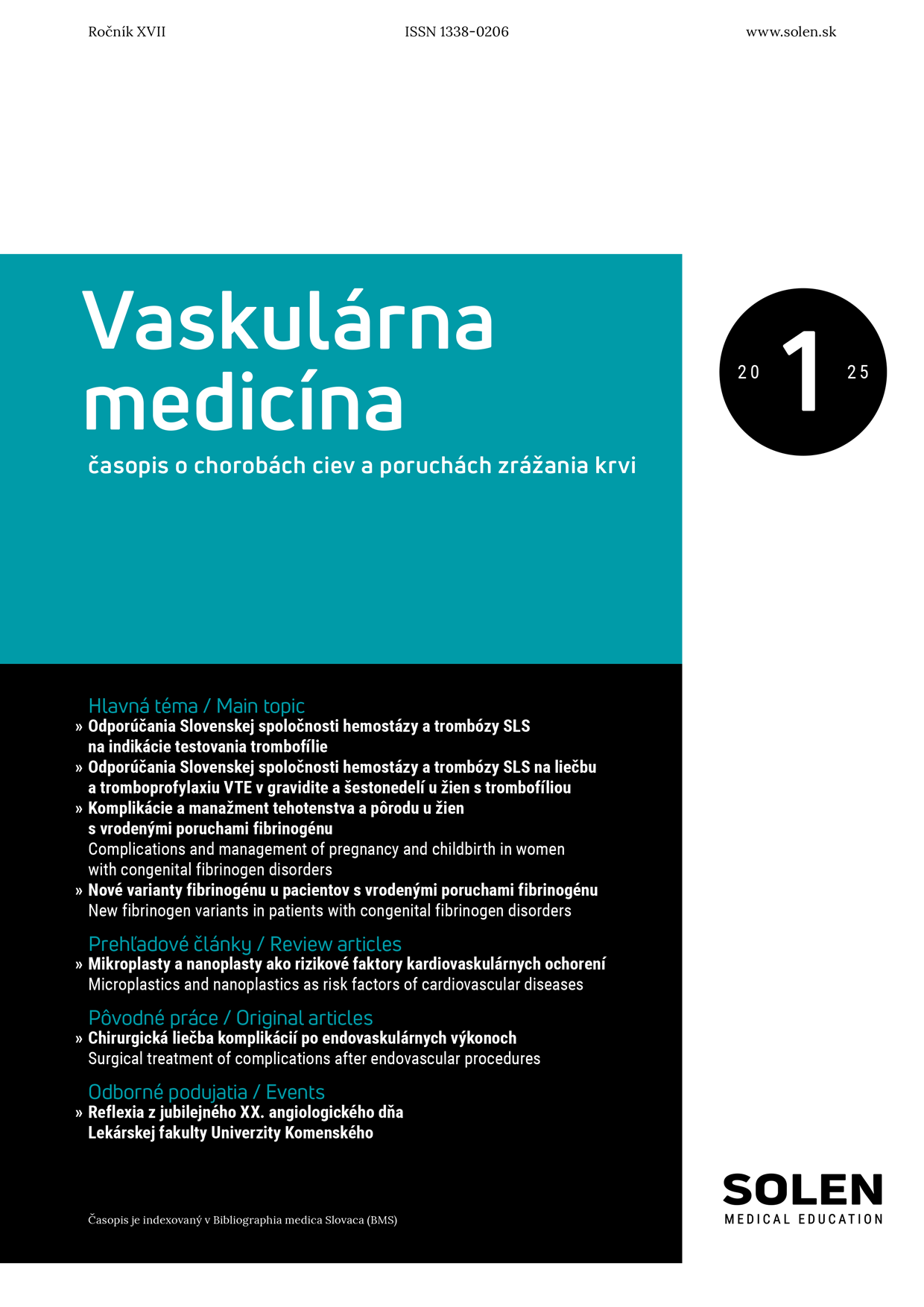Psychiatria pre prax 4/2009
Racionální a neracionální užití antipsychotik v gerontopsychiatrii
V gerontopsychiatrii se často setkáváme se stavy neklidu nebo s jinými poruchami vyžadujícími zklidnění. Nejčastěji jsou to poruchy chování u demencí, deliria, psychotické stavy ve vyšším věku (někdy spojené se syndromem demence, jindy ne). Existuje obecná tendence zklidnit takovéto stavy co nejdříve. V prvé řadě se pokoušíme neklid či jiné nežádoucí poruchy chování zmírnit nefarmakologickými prostředky, ale ne vždy je tato snaha úspěšná. Proto jsou ve velké míře používána antipsychotika. Jejich užití je často neracionální, tato farmaka jsou nadužívána. Někdy je však jejich použití nezbytné, těžký neklid, delirium nebo psychotické příznaky ohrožují někdy i život pacientů. Měla by se užívat antipsychotika s minimem nežádoucích účinků. Proto se běžně nepoužívají antipsychotika 1. generace. Existují výjimky – běžně je používán melperon, jehož vlastnosti se blíží antipsychotikům 2. generace, a u těžkých neklidů je jednorázově nebo krátkodobě používán haloperidol. U delirií a neklidů při demenci je masivně užíván tiaprid, který však má malý antipsychotický potenciál. Pokud převládají psychotické příznaky, jsou používána další atypická antipsychotika. Jsou rozebrány jejich přednosti i nevýhody. U poruch chování spojených s demencí má své místo i užití inhibitorů acetylcholinesteráz a memantinu.
Kľúčové slová: antipsychotika, delirium, demence, neklid, poruchy chování
Rational and nonrational use of antipsychotics in gerontopsychiatry
In gerontopsychiatry, states of agitation or other disorders requiring sedation are often encountered. They are most commonly behaviour disorders in dementias, deliria, and psychotic conditions at older age (sometimes associated with the dementia syndrome, sometimes not). There is a general trend to calm such states as soon as possible. First, attempts are made to ease agitation or other unwanted behaviour disorders with nonpharmacological methods, but these efforts are not always successful. Therefore, antipsychotics are used at a large scale. Their use often is nonrational resulting in their overuse. At times, their use is necessary since severe agitation, delirium, or psychotic symptoms may be life-threatening to patients. Antipsychotics with minimal adverse effects should be used. For that reason, first-generation antipsychotics are not routinely used. There are exceptions – melperone, whose properties are close to those of the second-generation antipsychotics, is normally used, and, in severe agitation, haloperidol is used in a single dose or in a short term. For deliria and agitation in dementia, tiapride is widely used; however, its antipsychotic potential is low. When psychotic symptoms are predominant, other atypical antipsychotics are used. Their benefits and risks are discussed. In behaviour disorders associated with dementia, the use of acetylcholinesterase inhibitors and memantine is appropriate.
Keywords: antipsychotics, delirium, dementia, agitation, behaviour disorders


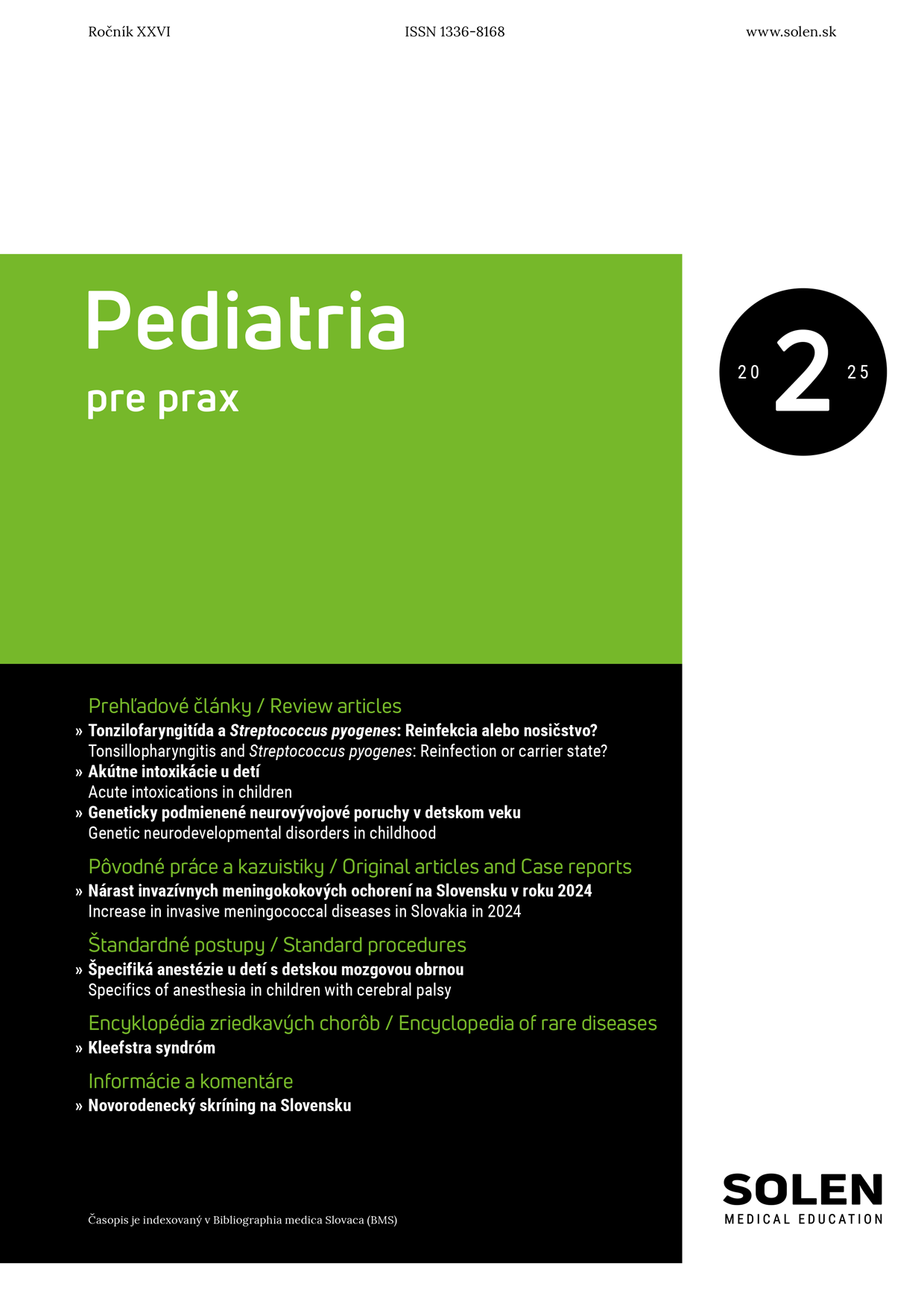
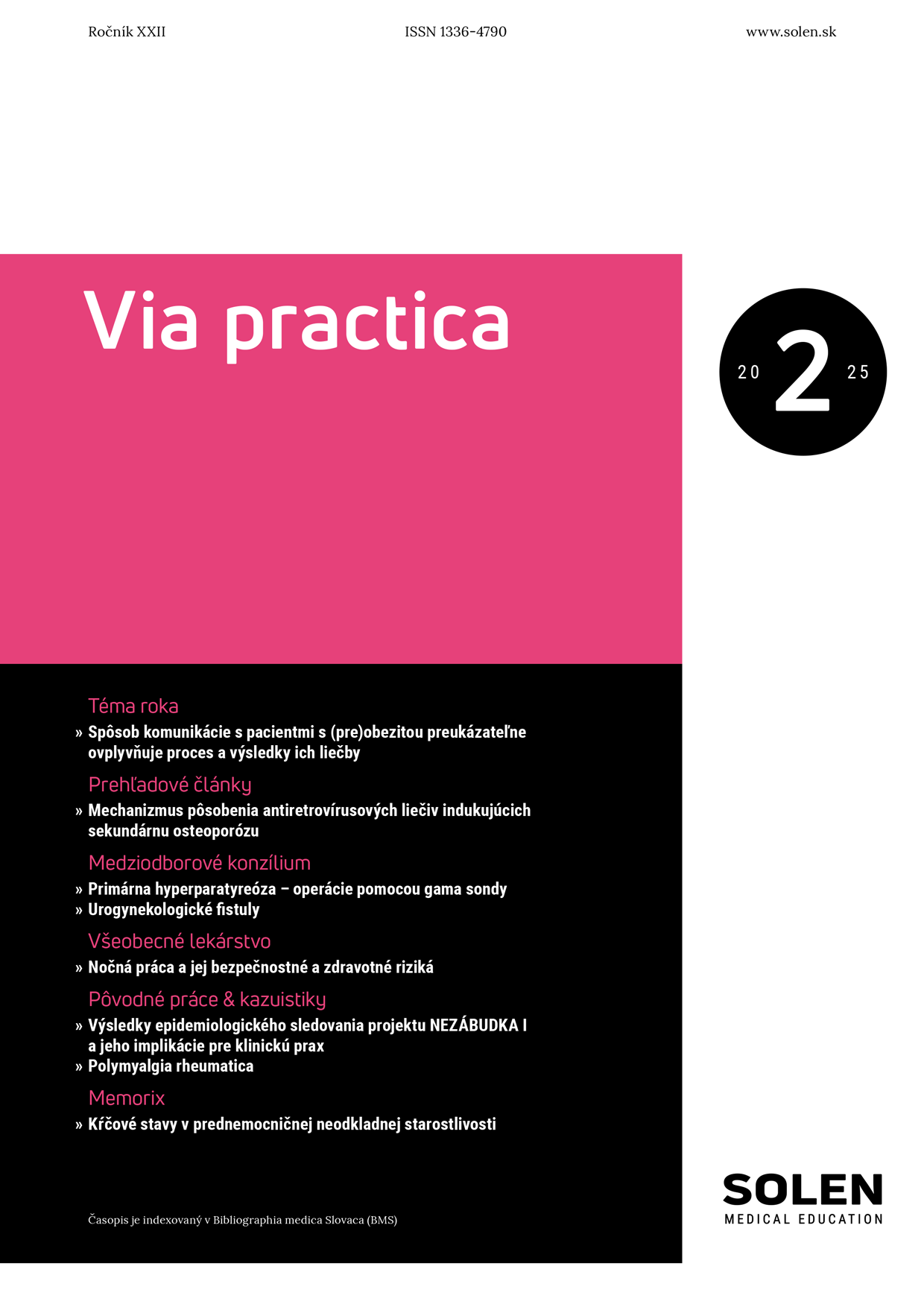
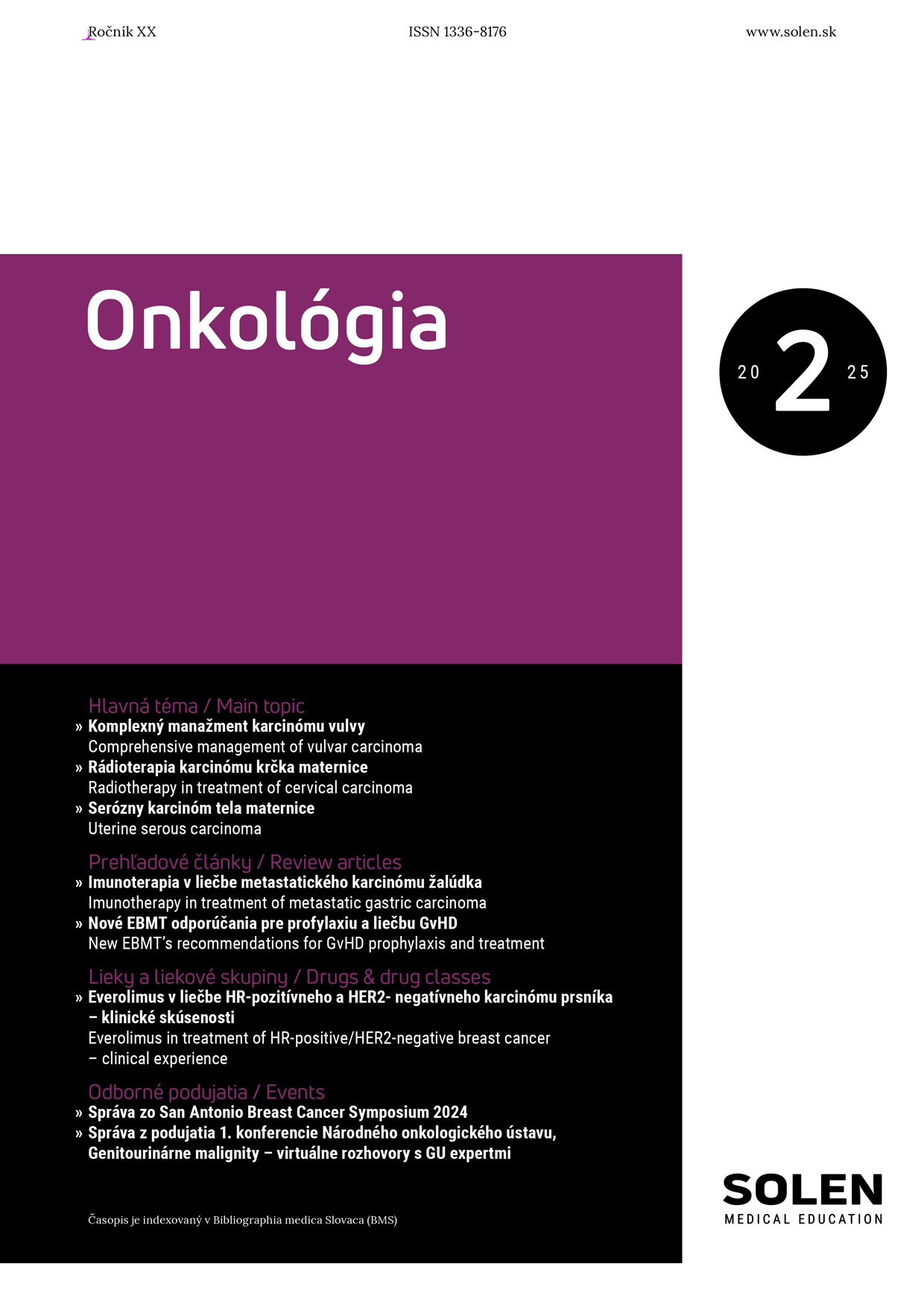
-1.png)
